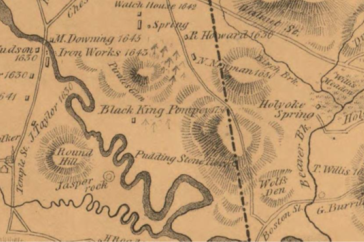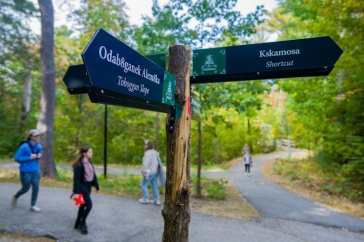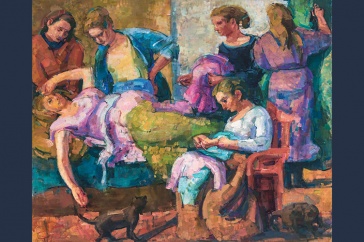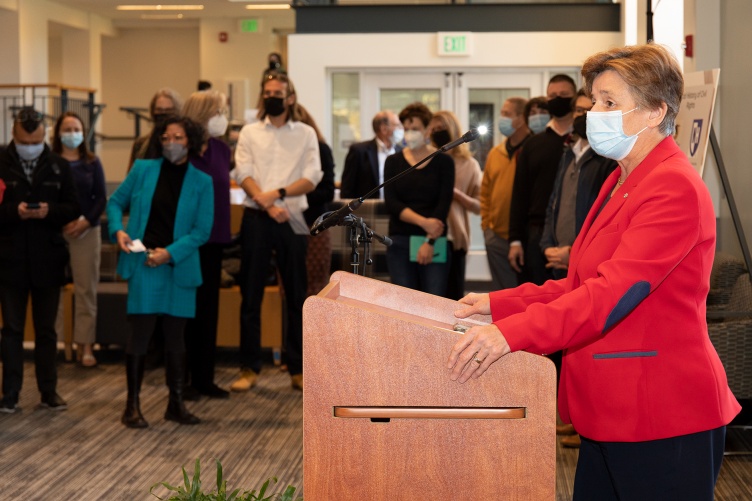
Dean Michele Dillon officially opens the Global Racial and Social Inequality Lab.
“This is not a place to shoot the breeze,” said Dean Michele Dillon at the opening of the College’s new Global Racial and Social Inequality Lab (GRSIL), which took place earlier this semester. The line got a laugh, but her point was this: the College is serious about furthering its work on issues of inequality. GRSIL is called a “lab” because that’s where experimentation, innovation and collaboration take place. It’s where change happens.
Recent Funding Opportunities
Small Grant Proposals
For: faculty, undergraduate and graduate students, and staff
To: pursue research, curriculum or community-engaged projects focused on issues of global racial and social inequality
January Research Opportunity Program
For: undergraduate students
To: pursue research or artistic activity during J-term 2022 focused on issues of global racial and social inequality
"We Hold These Truths..." Program
For: faculty, undergraduate and graduate students, and staff
To: integrate the essential commitment expressed in the Declaration of Independence into course curriculum during spring 2022 and contribute to a “We Hold These Truths…” event in April 2022.
GRSIL is an initiative meant to enhance the work around inequality — at the intertwined local, national and global levels — that College faculty and students have already been engaged in for many years. With funding from both the College’s gift funds and the Mellon Foundation, this Lab provides new support and infrastructure for ongoing projects as well as budding ideas in the areas of research, curriculum and community engagement.
The Lab is also a place where students can find enriching extra-curricular experiences, pursuing internships or research, either independently or on student or faculty teams.
Avary Thorne, the administrative coordinator of the Lab, is focused on connecting students to opportunities.
“One of the things I will be working on is channeling students into the wonderful programs that already exist but might need more support,” said Thorne. “For example, we have seven interdisciplinary minors: Asian studies, Africana and African American studies, race and ethnic studies, and more. We’ll be promoting those and focusing on other high impact experiences such as the Civil Discourse Lab; the Race, Ethnicity, Migration and Identity initiative; and Indigenous New Hampshire.”
The Lab also aims to break down some of the barriers to research for COLA students. GRSIL leadership has selected a dozen student applicants for paid student research opportunities during January term and, this summer, will offer COLA student fellowships for public humanities projects related to inequality.
On the crisp November afternoon of the opening, eight faculty-student teams presented rich examples of the kinds of work for which GRSIL will be a catalyst. The projects were initiatives of the New Hampshire Humanities Collaborative, a Mellon Foundation-funded partnership between New Hampshire's community colleges and the College of Liberal Arts.
Two of the projects seek to tell the stories of migrants to New Hampshire, over a century apart.
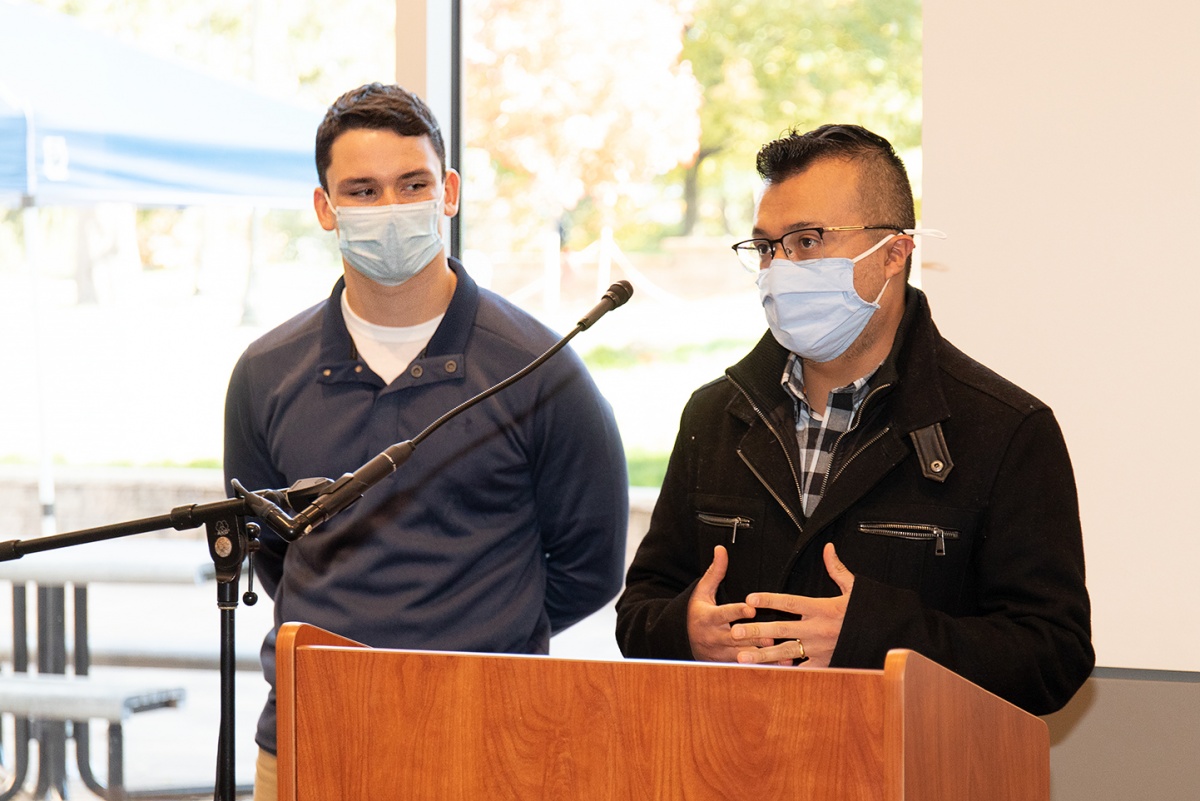
The Migration in NH project captures the oral histories of non-English-speaking faculty and students who have migrated to New Hampshire and are engaged in higher education today. What are the ongoing challenges they face because of language barriers and how do they deal with them? The project is making cultural and linguistic diversity in New Hampshire more visible and providing information that can be used to improve inclusive practices.
“This project was inspired by my own experiences as a non-native English speaker,” said Mauricio Pulecio, team member and lecturer in Spanish, who is originally from Colombia and moved to New Hampshire a few years ago. “I wanted to hear from students who are pursuing their dreams and bringing their experiences to New Hampshire and to know how we can support them to be part of our community.”

The experiences of immigrants in New Hampshire in the 19th Century Grand Hotel Era is the subject of Whiteness in NH: An Archaeology of Accountability. The rise of industrialism created a wealthy class that was highly dependent on the labor of immigrants, said Eleanor Harrison-Buck, the lead researcher and professor of anthropology. The team aims to uncover the history of hotel workers and other immigrant employees to trace the roots of racial inequities in New Hampshire and gain a fuller understanding of the past.
Team member Kieran Mulligan ‘22 (anthropology and classics majors), who scoured archives this past summer, admits he was apprehensive when starting the project, thinking he might not have the skills needed.
“I learned two very important lessons,” he said. “The first is that I was ready. Projects like these are in great need – they are what we need to be studying, looking at classism. And the other lesson was to trust that I would meet people on the very first day and that we would work hard together. And we did.”

The new Lab has offices and meeting space on the bottom floor of Murkland Hall specifically to encourage the kind of teamwork that Mulligan found so invigorating.
The Lab itself is run by a team of faculty, staff and students. In addition to Dillon and Thorne, the group includes Professor Delia Konzett, research lead; Professor Mauricio Pulecio, curriculum lead; Professor Alynna Lyon, community engagement lead; Professor Paul Robertson, New Hampshire Humanities Collaborative coordinator; business administration major Thomas Keegan ‘24, web manager; and political science and international affairs major Emma Pryor-West ‘22, administrative assistant.
“The team approach we are taking is to encourage ownership of these issues across the College and University,” said Dillon, as she brought the reception to a close. “We are an inclusive college. We welcome faculty and students from other colleges. We want people who are committed to doing research and internships in the areas of global racial and social inequality, very broadly defined. So, don’t be shy about sharing your input with anyone on the team.”
-
Written By:
Susan Dumais '88 '02G | College of Liberal Arts
















































